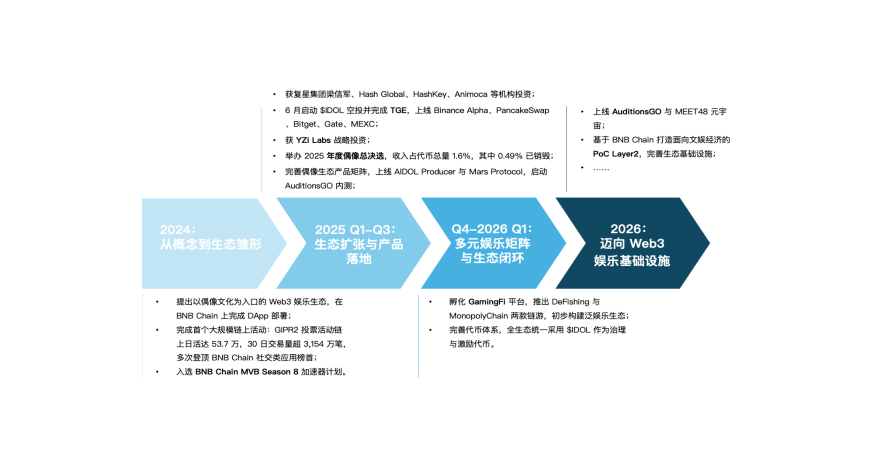Top VC a16z Discusses the Truth About Crypto Hiring: Crypto Veterans vs. Cross-Industry Experts, Who Is the Real Winner?
The article discusses the challenges faced by the crypto industry in recruiting talent, analyzes the advantages of crypto-native talent versus traditional tech talent, and provides recruitment strategies and onboarding advice. Summary generated by Mars AI. This summary is generated by the Mars AI model, and the accuracy and completeness of its content are still in the process of iterative updates.
As the development of the crypto industry has created a huge demand for talent, crypto founders need to know how to find and recruit outstanding talent—both crypto natives and those with traditional tech experience. However, one of the biggest questions is whether you need to hire people with crypto industry experience, or those who are able to learn about the industry. This has sparked endless debates within companies.
The good news is that the crypto industry is not the first to encounter difficulties in talent pipelines. This means you can draw on some mature best practices to find the right people with the right skills. The purpose of this guide is to help founders and recruiters determine when crypto industry experience is critical, when other types of experience can have the greatest impact, and what challenges and considerations need to be addressed during the hiring process.
To simplify the thinking, you can understand it this way: while there are indeed some differences between crypto companies and traditional tech companies, in terms of the processes and best practices for finding, hiring, and onboarding talent, you are not building a "crypto company," but rather a tech company. Therefore, be sure to apply those mature best practices to find people with the right skills.
You Need Talent with Both Crypto Native and Traditional Skills
The rule of thumb is that crypto native professionals have a crucial advantage: they can hit the ground running. High-risk projects are often time-sensitive, and every day counts. Sometimes, native crypto expertise is essential. This is especially true for roles involving blockchain technology and its application infrastructure, where even the most skilled professionals may face a steep learning curve.
Smart contract development is a great example. These self-executing protocols are coded directly on the blockchain and require precision and an understanding of decentralized logic, which is completely different from traditional programming. A vulnerability in a smart contract can have catastrophic consequences, even resulting in losses of millions of dollars, so this is a high-risk field where understanding the rules is critical.
Bringing talent into such a steep learning curve industry can be a challenge, as candidates may need time to adapt to the nuances of blockchain technology—decentralization versus centralization, more open source, and so on—as well as the "spirit and culture" of the crypto industry, which includes everything from different cultural terminology to ways of thinking. However, non-crypto company talent can drive the development of the crypto industry in many areas, especially as companies begin to scale. For example, traditional professionals with software engineering or operations backgrounds can bring a diverse set of skills and rich experience, often honed in large software companies. These professionals are often multi-taskers, able to navigate internal complex bureaucracy and obstacles to drive projects to completion. In the fast-growing, multidisciplinary teams of the crypto industry, this operational flexibility becomes a powerful asset.
Scaling experience is also critical. Traditional candidates have often participated in the development of products used by millions of users and have solved the challenges that come with success: ensuring systems remain operational under extreme infrastructure loads, optimizing large-scale performance, and handling unpredictable surges in demand. This experience is directly applicable to Web3 products, as these products are shifting from a niche crypto audience to a more mainstream market.
For example, candidates from fintech companies may have important relevant experience in payment technology or financial regulation, which may also play a role in your business. If you are developing infrastructure or consumer applications, there is a large pool of talent who have accumulated years of scaling experience in these fields. Consider the overlaps in these experiences and assess how quickly they can master the specific technologies of the crypto industry to build your ideal team. More broadly, candidates with experience in design, user experience, scalability, security, and leadership can also accelerate innovation in the crypto industry, as these skills are often domain-specific and may even be more suitable than those without such experience.
Once you have identified the skills and people you need (including whether they really need crypto native experience), the next step is to go out and recruit them.
Recruiting Top Talent from Any Background
The biggest challenge and the biggest opportunity are actually two sides of the same coin: you are a crypto company.
For some candidates from traditional companies, the volatility of the crypto industry, recent regulatory uncertainty, industry jargon, and decentralized products may feel too unfamiliar or unattractive, or even both. But for others, the same sense of unfamiliarity and occasional instability may actually excite them—these are not so much flaws as features of the company. In recruitment conversations, delve into how candidates view the stability and comfort of large companies versus the opportunities and challenges of fast-growing companies. Introduce them to a challenge your team has faced in the past few weeks, explain how it was addressed, and emphasize the responsibilities each team member should take on, considering the company's size and stage of development. Their reactions may tell you how they would respond in similar situations, or at the very least, let them know what is expected of everyone the next time something happens.
Candidates may not know much about the crypto industry when you first reach out, but a natural curiosity and interest in the advantages of decentralization are key. During the recruitment process, an important signal is whether their knowledge and engagement deepen over time: are they researching related content on their own? Are they asking more specific questions after learning new things? And so on.
To distinguish between two types of candidates—those who are skeptical of the crypto industry and those who are interested in it—and to avoid wasting your time and money, learn about candidates' motivations early to ensure they are aligned with your company's direction. This is a basic principle of recruitment, but it is worth emphasizing because it is very important, especially in the crypto industry.
Every recruitment conversation needs to be tailored to the specific candidate: what drives them to choose their current job? What has kept them in past roles? These factors are likely to be important parts of their decision this time as well. Start learning the answers to these questions from your first phone call with the candidate.
At the end of the recruitment process, you want to hire someone who is aligned with the company's vision and passionate about your product. At the same time, your team also needs to be excited about the new hire; this will help you judge whether the candidate is a good fit for your company, regardless of whether they have crypto industry experience. This should always be your guiding principle.
Since you are targeting highly curious candidates, you need to tailor your recruitment pitch to their characteristics. You can start by explaining the two cultural differences in the crypto industry: one is the "computer culture," which sees blockchain as a tool for building new networks to drive a new computing movement; the other is the "casino culture," which focuses mainly on speculation, trading, and gambling. Then, you can share how this emerging industry offers candidates a unique opportunity to reshape the future of technology, much like the early days of the internet.
A useful thought experiment is to try talking about your product and company without mentioning crypto technology. What problems does your company solve? What inspired you to start it? Why does it make the world a better place? This approach can help you convey your company's philosophy and vision without distracting your audience with technical details.
Another good entry point is simply to ask: "How much do you know about the crypto industry?" Even if the answer is skeptical or negative—such as stories from news reports or narratives about casino culture—this can open up the conversation and let you listen to their real concerns: external factors (policy), internal factors (technical complexity), personal factors (risk tolerance), and so on. You can share that many people in the crypto industry also agree with some skeptical views and steer the conversation toward the cool technical problems your project is solving.
Not everyone's main motivation is money, but you also need to be prepared to emphasize the financial rewards of the crypto industry. Historically, top talent has usually been reluctant to join early-stage companies for three reasons: (1) intense work culture; (2) poor work-life balance; (3) lack of liquidity compensation. Even if you solve the first two problems, the third can still cause you to lose a lot of potential candidates.
Compared to the rare liquidity events such as IPOs or acquisitions in the Web2 era, compensation innovations such as token-based pay structures can bring financial benefits and liquidity to early-stage companies. Be sure to use vesting/token grant plans that are at least partially locked to long-term goals, so that employees are tied to the company for the long term. Compensation is a complex topic and is obviously the issue job seekers care about most, so make sure you are well prepared to discuss it.
If you can execute these steps well, you will have a great chance of attracting top talent from outside the industry to become interested in your company. Next, you need to help them clarify how to contribute their best in their daily work.
Onboarding Considerations
Integrating new talent into a Web3 company requires education to shorten their adaptation time. You have already identified each person's knowledge gaps during the interview process. Use this information to design the onboarding experience and fill those gaps as quickly as possible.
For example, new employees may need help to go beyond the technical details of blockchain and decentralized systems, understand the real-world problems they will be solving, and build confidence in their roles.
Regular knowledge sharing sessions, where new employees interact with more experienced crypto industry veterans, can foster teamwork and allow team members to learn from each other's strengths. Mentorship programs can pair new members with experienced Web3 professionals, providing valuable hands-on learning opportunities. Even better, you can structure projects so that crypto industry "unicorn" talent (those with all the skills, knowledge, and background) are paired with new members, helping them develop into their own crypto industry unicorns over time.
Upskilling and education are also necessary and will remain important as the industry continues to evolve. Resources such as blockchain-related blogs, podcasts, and educational courses—for example, how to use smart wallets, how to stake, tokenomics, smart contract design, or basic concepts of blockchain in different scenarios—are good starting points for continuous learning. Working with mentors in established crypto organizations can provide hands-on experience, while thought leaders in the industry can offer deep insights through reports (including our own "State of Crypto Report").
The key is, whatever your new employees need to excel, your job is to help them learn, find, or access those resources from day one.
Disclaimer: The content of this article solely reflects the author's opinion and does not represent the platform in any capacity. This article is not intended to serve as a reference for making investment decisions.
You may also like
Kodiak launches Berachain native perpetual contract platform—Kodiak Perps, enhancing its liquidity ecosystem
The native liquidity platform of the Berachain ecosystem, Kodiak, recently launched a new product, Kodiak Perps,...

Mars Morning News | Michael Saylor calls: Buy Bitcoin now
Trump Media & Technology Group’s Q3 losses widened to $54.8 million, and it holds substantial amounts of bitcoin and CRO tokens; US consumer confidence has fallen to a historic low; a whale bought the dip in ZEC and made a profit; a bitcoin whale transferred assets; Michael Saylor called for buying bitcoin; the Federal Reserve may initiate bond purchases. Summary generated by Mars AI. The accuracy and completeness of this content is still being iteratively updated by the Mars AI model.

MEET48: From Star-Making Factory to On-Chain Netflix — How AIUGC and Web3 Are Reshaping the Entertainment Economy
Web3 entertainment is moving from the retreat of the bubble to a moment of restart. Projects represented by MEET48 are reshaping content production and value distribution paradigms through the integration of AI, Web3, and UGC technologies. They are building sustainable token economies, evolving from applications to infrastructure, aiming to become the "Netflix on-chain" and driving large-scale adoption of Web3 entertainment.

Digital Euro: Italy Advocates for a Gradual Implementation

